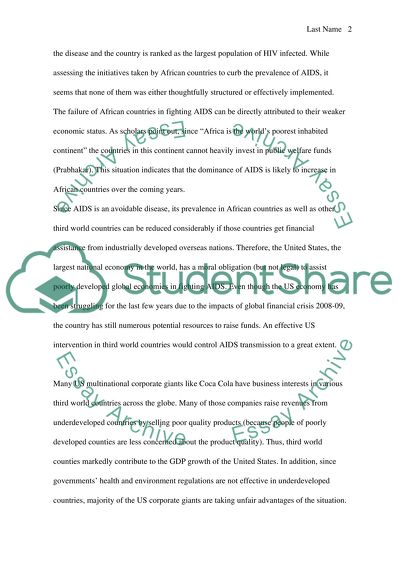Cite this document
(“Aids: US Obligation to Third World Countries Essay”, n.d.)
Retrieved from https://studentshare.org/history/1451267-aids-us-obligation-to-third-world-countries-and
Retrieved from https://studentshare.org/history/1451267-aids-us-obligation-to-third-world-countries-and
(Aids: US Obligation to Third World Countries Essay)
https://studentshare.org/history/1451267-aids-us-obligation-to-third-world-countries-and.
https://studentshare.org/history/1451267-aids-us-obligation-to-third-world-countries-and.
“Aids: US Obligation to Third World Countries Essay”, n.d. https://studentshare.org/history/1451267-aids-us-obligation-to-third-world-countries-and.


